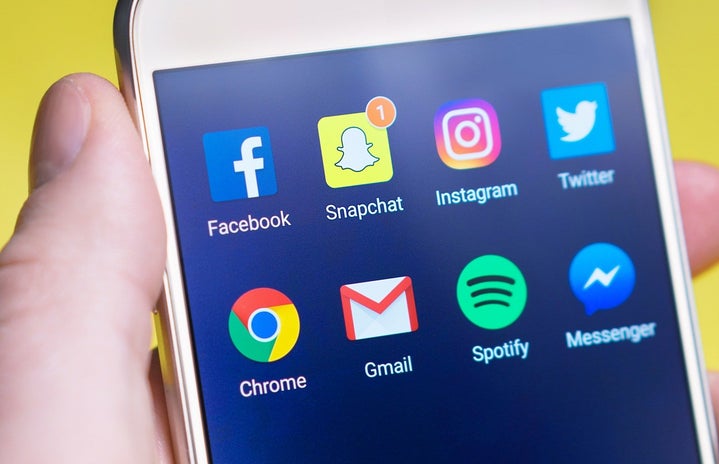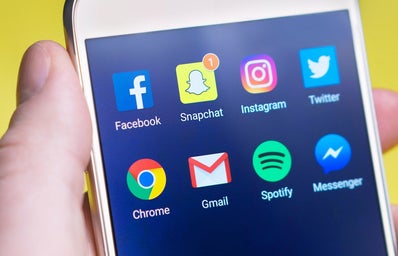It’s not news to anyone that Instagram is still in the process of trialling the privatization of likes on our feed. This means that in certain parts of the world, the number of likes on posts are no longer being shown.
Whether you can see Instagram likes depends on your geographical location. The social media application is currently testing this feature fully in seven countries including: Australia, New Zealand, Canada, Brazil, Ireland, Japan, and Italy. Canada was the first country to experience the update last May.
As an exchange student from the UK, I noticed the number of likes on photos disappear shortly after arriving in Canada.
Adam Mosseri, the CEO of Instagram, announced in November last year that they would be removing likes for some American Instagram users. Mosseri said the basis behind the idea is to “depressurise Instagram and make it less of a competition. Giving people more space to focus on connecting with people that they love, things that inspire them.” Soon after, Instagram implemented the update on some accounts in the UK too.
There were mixed reactions to this change from users of the platform. In November Nicki Minaj, for example, took to Twitter to express her thoughts, claiming that she would no longer be posting on the app due to the removal of likes. The famous rapper took a three-month break from the social media platform before deciding to post again in January.
However other celebrities praised the decision, like Kim Kardashian, who during a DealBook conference revealed that she believed this change “would be beneficial for people,” especially in terms of mental health.
There are scientific studies which prove that using social media does in fact have a negative influence on one’s mental health, particularly that of young people. Instagram CEO, Mosseri has even addressed this himself, citing this research as the reasoning for ridding likes on the app.
But how do people really feel about the change?
A study by The Manifest found that 55 per cent of Americans actually felt indifferent about the changes to the app and believe that it wouldn’t impact them in any way. Prior to my move to Canada, I felt a similar way and thought that it wouldn’t make a difference to me whether I could see a number below a photo or not. At first, I felt slightly left out due to the fact that I knew that my friends at home in the UK could still see them and I couldn’t, however I quickly got over that aspect.
Eventually I realized that I had been subconsciously judging accounts of people I didn’t know or had recently met on the number of likes they garnered on their posts, instead of appreciating the content for things like creativity and charisma.
After a while, I was no longer posting content that I felt would receive the most amount of likes, but instead I was posting the content that I loved and wanted to share, without comparing the number underneath it to anyone else’s. These were all things that I didn’t even realize I was doing, and since coming back to the UK and being able to see likes again, I’m now more aware of it than ever before and can feel it already impacting my activity on the app.
Despite this, those who live in the experimental countries and use the social media site to promote a brand and to enhance their business, feel the change has had an impact on their follower activity.
#Paid, an influencer marketing platform, conducted a survey of Canadian influencers on Instagram two months after the trial began. The survey revealed that nearly 50 per cent of creators noticed their follower growth slow since the decision to make likes private.
Instagram has made various changes over the years in order to enhance user experience. They now focus on connectivity between “friends and family,” which was one of the reasons behind their update to the algorithm back in 2016. This change meant that the app would show individuals what it thinks is most important to its users, like the people – or even brands – most important in their life.
Despite the criticism this algorithm change caused and still causes to this day, Instagram claimed that with the old algorithm, people were missing out on 70 per cent of their feed, due to the platform becoming crowded with big brands and influencers. Instagram suggested that through changing their algorithm to this “friends and family” first setting, users would see more of what they really wanted, at higher places on their feed. This means that when a user signs into Instagram, their feed will be based on their relationships with the people posting, the timeliness of the post, and the likelihood you’ll be interested in the content.
Therefore, the algorithm works by analyzing who you interact with on the app and the content that you like.
This means that, as Instagram changes its algorithms and the ability to view likes, those who are subject to these experimental changes and are making a profit from social media applications are seeing less interactivity, and feel that they are being put at a disadvantage to others. This can be most often seen in Canadian influencers, who feel that they can no longer fairly compete with American influencers who do not experience these changes.
Instagram is not alone in its decision to remove likes. Founder of Twitter Jack Dorsey said he would consider getting rid of the like button on tweets altogether back in 2018. However many took to twitter to express their outrage at this decision. Without the like button, users would be more inclined to either retweet or comment to show their approval of opinions, exposing many people’s private views and causing disagreement between followers, as it would become more easily viewable on a user’s timeline, essentially putting users at risk of abuse.
YouTube also made the decision to round up the number of subscribers last year, which sparked disagreement among content creators, such as YouTuber Keemstar, who took to Twitter to announce that he does not like or agree with the move made by YouTube.
Whatever the motivation for these changes, the young people who use these social media applications should always remain at the heart of this decision making process, as they are most at risk.
Without the pressure of Instagram likes, I found myself spending less time on the social media app, or constantly obsessing over a model’s profile, or comparing myself to others, and digging myself into a deeper hole of self-hate and jealousy – things I hadn’t even realized I was doing it before. A study by JAMA Network, a peer reviewed medical journal, found that young people who spend over three hours on social media a day are at a higher risk of mental health problems, possibly due to the fact that they are comparing themselves to others who create a false reality of their life.
And although social media can have damaging impacts on people, there are also positives that must be acknowledged.
Another survey by The Associated Press found that 78 per cent of teens said that social media makes them feel closer to friends and 42 per cent claimed that it helps them connect with their family.
This is the key behind Instagram CEO Mosseri’s idea to rid the visibility of Instagram likes, so that people feel more connected with friends and family, which, if it works, would suggest that it would have a positive impact on all users, particularly, those most vulnerable.



